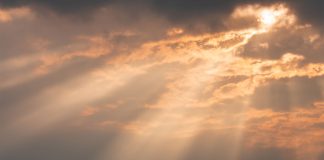The only death that can be avoided
"If there is anything more heartbreaking than a body perishing for lack of bread, it is a soul which is dying from hunger for the light." (Victor Hugo)
The emancipation of a free man
Louis Zamperini experienced the bizarre smell of death so many times that he came to the verge of losing his mind. However, he survived, and by choosing to forgive the unforgivable, he was able to breathe life into an entire world.
Books: from windows on the world to mirrors reflecting our inner selves
I’ll never be able to separate the memories of childhood from that of books. They intertwine like colours in fabrics, in a jumble of real and fantastical, bitter and sweet, joy and guilt.
“The Case for Jesus: The Biblical and Historical Evidence for Christ” | Book review
"The Case for Jesus: The Biblical and Historical Evidence for Christ" challenges both the atheist and the agnostic, as well as the convinced or full-of-questions Christian, to look at the person of Jesus of Nazareth in a new light.
The hope of God’s judgement
To be able to see our world and life through the experiences of someone of a different culture and background is rare. It is a gift—but it can also be a jolt to our sensibilities and assumptions. The world we thought we knew can look very different through someone else’s eyes. This is one reason storytelling can be such a powerful form of...
The risks of mRNA vaccines in the COVID-19 era: How we know they don’t alter our DNA
Risks of mRNA vaccines in the COVID-19 era: How we know they don't alter our DNA.
Church culture: the effect of the way we work together
It is not something that is written in any rules or printed on posters. However, you can see it in the way people greet each other and share their ideas, as well as in the sense of belonging they experience when they participate in church activities. The organisational culture of the church can be a source of unity, or conversely an invisible obstacle...
Life after lockdown: a return to the rat race?
On any given day, a typical person checks the clock several dozen times.
A king’s dream: Martin Luther King, Jr. and the gospel of liberation
At the age of 34, he moved the American people with a speech about his biggest dream. At 35, he was awarded the Nobel Peace Prize. At the age of 39, his life ended suddenly, with Martin leaving his dream as a legacy to the next generations.
What is the link between religion and conspiracy?
In the famous realist novel A Journal of the Plague Year, Daniel Defoe blends the factual with the imaginary, describing the social context just before the great plague struck London in 1665. Among the reactions described, two straddle the line between religion and conspiracy.
The quest for perfection among today’s parents
Anyone who thinks they know exactly how to raise a child will usually change their perspective after becoming a parent. Beyond the joy of welcoming a new family member, they are confronted with the "despair and helplessness" of navigating the complex and unfamiliar world in which they now find themselves, writes psychotherapist Isabelle Filliozat.
How to sleep well in the age of anxiety
Sleep is perhaps the most important, complicated, and misunderstood physiological mechanism that keeps us alive.
Saint Paraskeva: History and mythology
For the crowds gathered around the casket containing the relics of Saint Paraskeva, everything is just dream and faith. Amazingly much faith. There is also something else. There is the hope of a miracle, a miracle that will cure diseases, cover debts, and make life happy.
Are spiritual forces real?
Ideas about death, souls and afterlife existence are often intertwined with religious or spiritual beliefs—in other words, belief in the supernatural. But are spiritual forces present or observable in this world? Do they exist? Can they be observed, defined, categorised? Are friendly ghosts and vengeful spirits lingering in haunted houses real, are the paranormal investigators you see on television really fighting an evil spirit as they claim, or...
The Great Reset: a revolution that has been proposed before
Every January, economic and governmental elites gather in their hundreds in Davos, the exclusive ski resort in Switzerland, where the World Economic Forum holds its annual high-level meeting. This year, because of the pandemic, the in-person meeting had to be rescheduled. But the controversies surrounding the meeting's theme – The Great Reset – were not postponed.


























